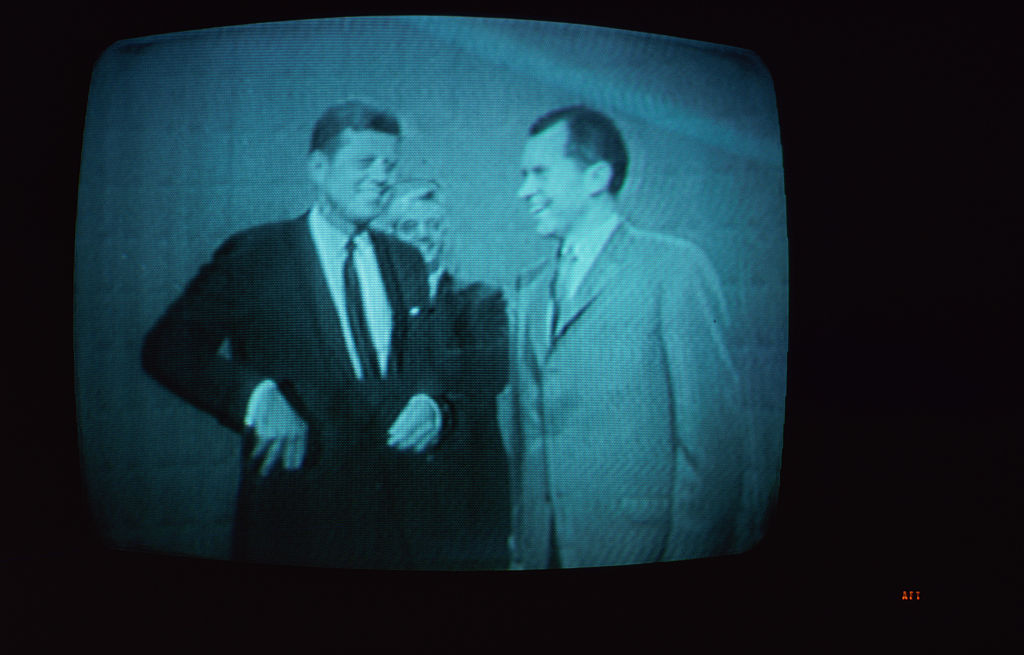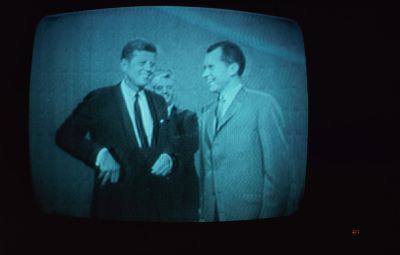TUSCALOOSA, Alabama — Here on Wednesday, we will get to see what seems to be the last scheduled, sanctioned debate of the 2024 presidential primary election season, and it’s not even 2024 yet.
Indeed, this may be the last “official” debate of the entire cycle, including the general election.
The Commission on Presidential Debates, the bipartisan governing body that has hosted general election debates since 1988, announced its regular slate of events for next year, but there’s little reason to think those will actually happen. The Republicans dropped out of the compact last year, and President Joe Biden’s campaign has been noncommittal.
Certainly, there will at least be a debate about debates, in which the Republican nominee will try to force Biden to the podium and the incumbent tries to wriggle out.
In the ongoing race for the Republican nomination, some TV networks are trying to put together their own debates. But with frontrunner Donald Trump having so far blown off even the ones with the blessing of his party, it’s unclear—to say the least—whether that will actually happen.
And if he does go on to be the nominee, Trump ducking debates in the primaries will make it easier for Biden to blow off demands that he face Trump on stage. Complicating matters further, the energy around third-party candidates in the race will surely intensify if we end up with a 2020 rematch.
With a defanged Commission on Presidential Debates, Trump shunning his own party, and the real possibility of a third or fourth candidate in the mix, Biden may be the first incumbent since Richard Nixon not to have to debate.
Should we care?
Certainly it’s worth noting that Wednesday’s debate marks the end of something. It’s another piece of the political consensus born out of the turmoil of the 1970s that seems to have met its match in the similarly wild 2020s. Like Roe v. Wade, affirmative action, congressional budget reforms, and campaign finance restrictions, the idea of regular, formalized, broadcast presidential debates arose in response to an unsettled era of change.
There had been a few primary debates on radio between 1948 and 1956, but never one for the general election or one on television until the famous first face-off between Democrat John Kennedy and Republican Richard Nixon on September 26, 1960.
The recollection of then-Sen. Barry Goldwater—who heard the first part of the debate in a car on his way to a speech in Pasadena, California—sums up the public reaction at the time. “I heard the radio show, and I would have given Nixon the debate on points on the radio,” he recalled in a 1965 interview. “But, at the dinner, it was televised and shown up on a big screen, and I said, ‘Oh, my God.’”
It was a stark contrast: Kennedy, smooth and peppy; Nixon, scowly and jowly.
In 1964, President Lyndon Johnson, the scowliest, was not having any of it. He refused to debate Goldwater, and Nixon, not surprisingly, followed suit in 1968 and 1972. But in 1976, President Gerald Ford, who was running behind Democratic challenger Jimmy Carter, came around.
The League of Women Voters, then a powerful nonpartisan political force, with the help of famed former Federal Communications Commission Chairman Newton Minow, pushed for and secured three presidential debates. The first did not go smoothly but was seen as a strong showing for the incumbent. And despite one of the most famous gaffes in debate history, the contests no doubt worked to Ford’s benefit overall, helping him close a 33-point gap with Carter and nearly winning a full term in November.
So it was understandable that in 1980, Carter would follow the example of Johnson and Nixon and try to avoid debating his challenger, Ronald Reagan. Carter’s campaign said he would not debate if the third-party candidate, liberal Republican Rep. John Anderson, was included. Anderson, polling in the double digits, was hard for organizers to exclude. But Reagan eventually called Carter’s bluff and agreed to a one-on-one debate with the incumbent, held October 28 before the largest television audience—more than 80 million viewers—of any debate until 2016.
In 1984, incumbent Reagan relished the chance to face Democratic challenger Walter Mondale, but struggled in the first of three contests. In the second, though, Reagan famously took back control on his way to a 49-state landslide in November.
For 1988, general election debates were again in flux. The chairmen of the Democratic and Republican parties teamed up to try to rein in the League of Women Voters, which subsequently announced that, because of the partisan jockeying and demands for greater restrictions on questions and formats, they would drop out rather than become “an accessory of hoodwinking the American public.”
Stripped of their nonpartisan cover by the League’s departure, the parties needed to bolster the credibility of the proceedings and, through the new vehicle of the Commission on Presidential Debates, keep the process stable. After all, it is in both parties’ long-term interests to have a predictable means for conducting debates and limiting their number.
The era of stable predictability began in 1992, when the still-new commission found its way through the third-party conundrum that almost kept Carter from having to debate 12 years earlier. The new regime managed to hold debates credibly while still including wild-card candidate Ross Perot.
That was the way of the world until 2020 when, like a lot of things, the old order broke down. Trump caught COVID-19, refused to engage in a remote debate, and ended up—unlike his modern predecessors—only having to debate his challenger twice, rather than three times.
Which brings us back here to Tuscaloosa and what may be the last official debate of the 2024 cycle, primary or general. Neither Trump nor Biden has had to debate anyone since October 22, 2020, and there seems like a pretty decent chance that one of them could win the presidency next year without ever having to face moderators, voters, or each other in any kind of unscripted, independent forum.
Certainly there would be better ways to hear from the candidates than in a moderated debate—a Lincoln-Douglas-style contest, for instance. But it doesn’t look like the choice voters are facing is between good and better, it’s between any and none.
Right now, “none” seems to be the frontrunner.







Please note that we at The Dispatch hold ourselves, our work, and our commenters to a higher standard than other places on the internet. We welcome comments that foster genuine debate or discussion—including comments critical of us or our work—but responses that include ad hominem attacks on fellow Dispatch members or are intended to stoke fear and anger may be moderated.
With your membership, you only have the ability to comment on The Morning Dispatch articles. Consider upgrading to join the conversation everywhere.